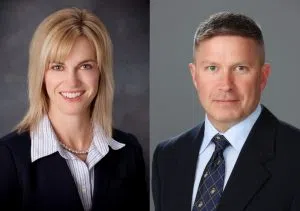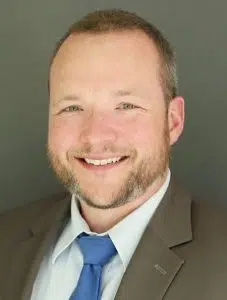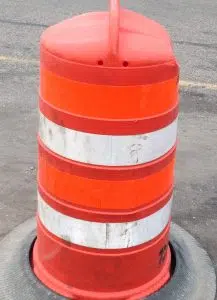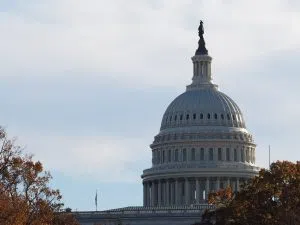 (Amy Dalrymple – North Dakota Monitor) – Republican U.S. House candidate Julie Fedorchak continues to face questions from her opponent about her family’s connection to a controversial carbon dioxide pipeline project, as well as criticism about accepting campaign donations from the industry she regulates.
(Amy Dalrymple – North Dakota Monitor) – Republican U.S. House candidate Julie Fedorchak continues to face questions from her opponent about her family’s connection to a controversial carbon dioxide pipeline project, as well as criticism about accepting campaign donations from the industry she regulates.
Democrat Trygve Hammer, who is running against Public Service Commissioner Fedorchak for North Dakota’s at-large House seat, said Fedorchak will “profit quite handsomely” if the Summit Carbon Solutions pipeline and storage wells are approved.
Fedorchak said she publicly disclosed her conflict and recused herself from all decisions related to the project. She said Hammer is repeating “bogus claims” to distract voters because his party’s agenda is bad for North Dakota.
“I have zero oversight over that company now or ever,” Fedorchak said. “So that’s why these claims are completely bogus, absolutely bogus smear attempts by opponents to try to make me look bad and distract from their lack of accomplishments and record and work.”
Summit Carbon Solutions proposes to capture carbon dioxide from ethanol plants in five states and transport it by pipeline to three underground storage wells in central North Dakota. The project has faced significant opposition.
Fedorchak’s family owns land in Oliver County and has signed a contract with Summit Carbon Solutions to store carbon dioxide. The pipeline, which has been under consideration by the three-member Public Service Commission since 2022, does not cross the Fedorchak land. An alternate PSC member has been serving in Fedorchak’s place on all matters related to Summit. Fedorchak said the family bought the land in 2012, a year before she began serving on the commission. She said the family had been looking for agricultural land for about four years as a way to connect their children to rural North Dakota.
She said during a debate in May the family received $22,000 for the contract and will be eligible for future payments if the CO2 storage well is approved.
The North Dakota Industrial Commission, not the PSC, has oversight over the proposed CO2 storage wells. The Fedorchak family owns 640 mineral acres in one well, according to data filed with the North Dakota Industrial Commission. That is equivalent to about 2% of the storage space.
Fedorchak faced criticism about her connection to the Summit project from Republican opponents ahead of the June primary. Now the Democrat running against Fedorchak is raising some of the same questions, including comments during an hourlong interview Wednesday night on BEK TV.
“We’re supposed to believe that it’s just a happy accident that it’s going in the ground out there where she and her husband bought that land when she was involved in politics during the time when this was all coming together and could’ve had information,” Hammer told the North Dakota Monitor.
Fedorchak, who worked as state director for U.S. Sen. John Hoeven before former Gov. Jack Dalrymple appointed her to the PSC, said she had no prior knowledge about the potential for a carbon capture project.
“CO2 projects weren’t even being contemplated at that time. This wasn’t technology that was being pursued and there was absolutely no hint or indication that anything like this was coming,” Fedorchak said.
Red Trail Energy began operating North Dakota’s first CO2 storage well in June 2022. The Energy & Environmental Research Center led an effort in late 2017 and early 2018 to drill the first test wells in Mercer and Oliver counties to study the CO2 storage potential of that area.
Hammer also questions campaign contributions Fedorchak received from industry while serving as a regulator. He points to a $10,000 contribution from North American Coal in September 2014 and an October 2014 vote to approve the Coyote Creek Mine. He also questions a 2016 vote in favor of a NextEra wind energy project and a December 2016 donation from a NextEra political action committee for $5,000.
“It’s perfectly legal for these company PACS to give money to candidates, but it looks a little fishy when it’s a company and industry that you regulate,” Hammer said.
It’s been common for members of the Public Service Commission and the North Dakota Industrial Commission to receive campaign contributions from industry PACS.
Fedorchak said all of her decisions on projects were based on the factors of the case and nothing else.
“All of my campaign donations have been publicly reported, completely transparent, exactly as directed by law, and they have been reviewed for the last 12 years by the North Dakotans who have elected me consistently to serve them,” said Fedorchak, adding that none of her decisions have ever been overturned.
Republicans including candidate Rick Becker raised similar criticism of Fedorchak ahead of the June primary. Voters in the primary selected Fedorchak with 46% of the vote in a five-way race.
Hammer said he thinks it’s the job of Democrats to raise these questions while campaigning.
“Because we haven’t fielded candidates and haven’t been out there on the attack when it’s justified, these things go unnoticed,” he said.
Hammer said he hears questions from voters about the Summit project and the influence of energy companies.
“There’s just that general feeling that outside interests can always just roll right over North Dakotans, landowners and citizens,” Hammer said.
Fedorchak said she’s not fielding questions from voters about Summit.
“This is not what I’m hearing on the campaign trail,” Fedorchack said. “They’re worried about inflation, they’re worried about the borders. They’re worried about energy policy that is crushing our country and our state and is being driven by Trygve Hammer’s party nationally. That’s what people in North Dakota are worried about.”









